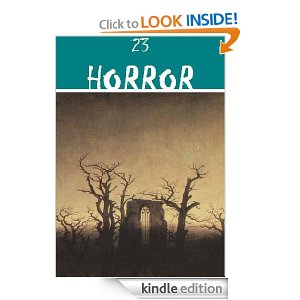Hello all! Sheriff Tom here. I seem to be the only one making Notes From Stansbury right now. That's cool, I guess. But I didn't even get an introduction this week. What gives? It's like I'm just expected to show up and write about short stories now.
Well, okay, it gives me something to do and it bugs Steve that I get to write stuff for the town blog and he doesn't. His little weasel face gets all twisted up which is just funny which makes this worthwhile.
Anyway, I suppose everyone else is outside doing things and too busy to stare at a computer screen. It's just too beautiful for words around now...or beautiful enough to partake of words outside. Books are wonderful for a lazy late spring day sitting out on the grass under a tree somewhere. When I was a kid, I used to love Roald Dahl's works and as an adult, I was thrilled to discover that he wrote stuff for us, too.
If you ever have the chance, pick up a Roald Dahl omnibus.
There is a treasure trove of wonderful dark stories. "The Wish" is one of those great
stories about a child’s imagination that slowly blurs the line between what is
imagined and what is real. At the outset, the child’s journey across a huge rug
is the kind of game many kids (including myself as a child) play. There are
three colors in the rug and only one is “safe” to walk on while stepping on the
other two will lead to certain death.
The ending of the story is ambiguous as to whether or not the game had
somehow become real.
Throughout the story, Dahl’s language captures the mindset
of the child perfectly. Because it is a child’s imagination, the reality of the
situation is always in doubt. It is only when the titular wish is made in
passing that there is even an inkling of a sense that the child has willed
something real into the world. As a reader of Dahl’s work, I always have an
expectation of some kind of twist at the end of the story, something unexpected
(but expected). More often than not, it is a moral or a lesson being taught to
the reader from Dahl’s very strict sense of right and wrong. This story was an
interesting diversion from the norm because I didn’t get the sense that the
child was being punished for anything. Because of the ambiguous ending, I am
not even sure if anything happened to the child at all and, unlike many Dahl
characters, I did not really want anything to happen to this child.
The tension in the story reflects the sense of play. Dahl
effortlessly creates a lack of danger by filtering everything through the
child. Because I felt this was a child’s game, even though I suspected that it
would become real, I was never really worried for the child. The tension is
consistently deflected until the end, where the lack of definite resolution
creates a greater tension. Not really knowing what happened, worrying that the
snakes in the rug were real and devoured the child… there is real angst in this
beyond a tidy conclusion.




